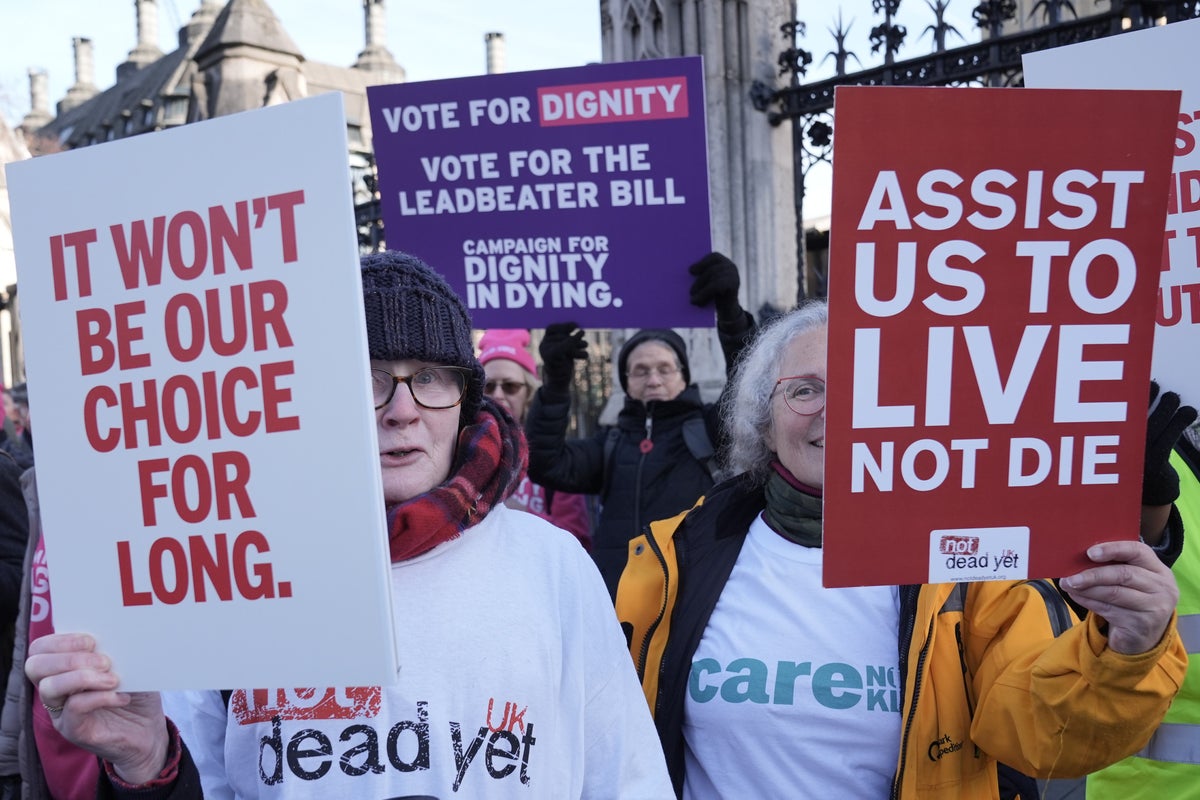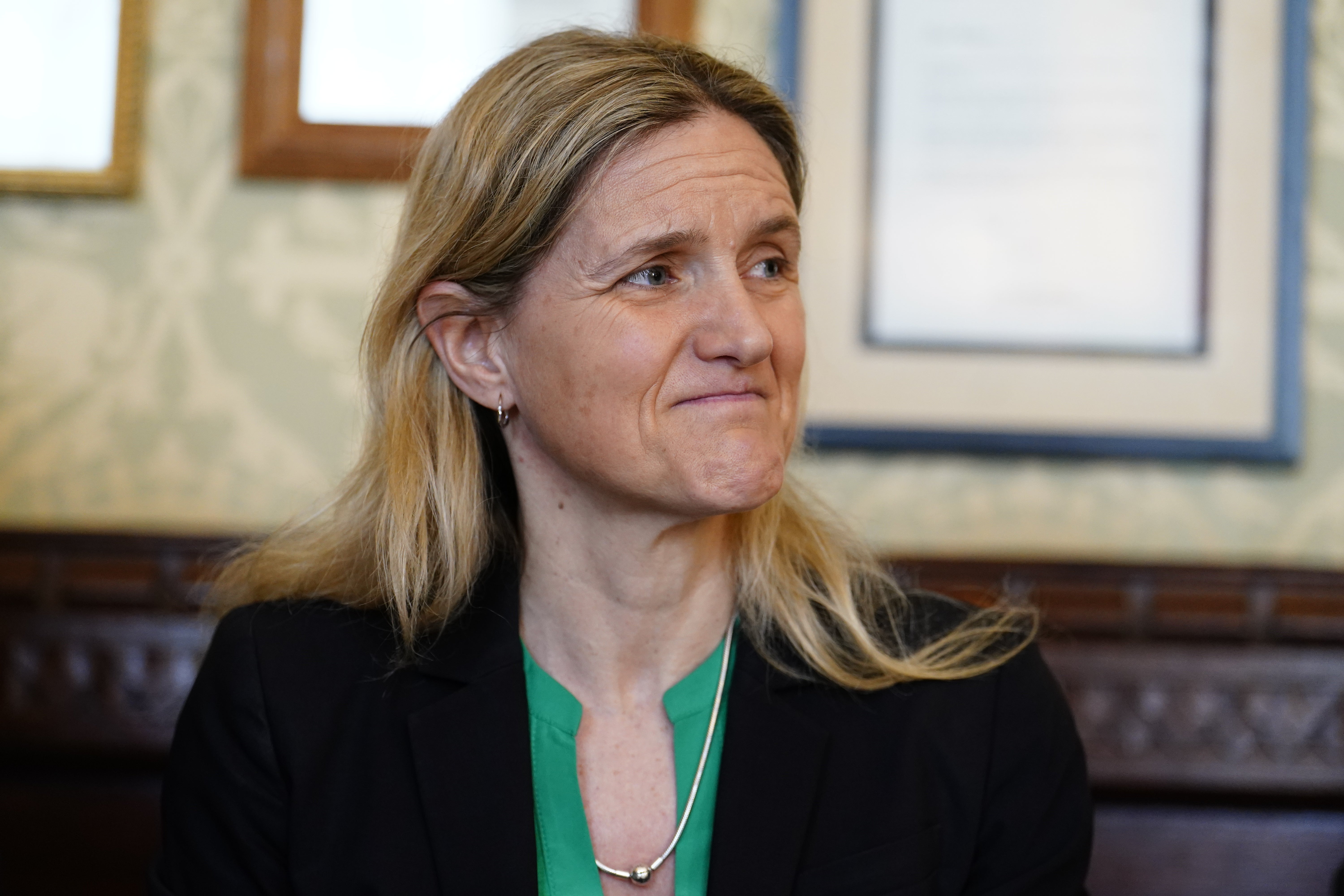
Almost 800 assisted deaths might occur in the first year of an assisted dying service being in place in England and Wales and end-of-life care costs could be cut by millions, according to the Government’s analysis.
A 149-page impact assessment into the Terminally Ill Adults (End of Life) Bill was published on Friday, exactly a fortnight ahead of the next Commons debate on the proposed new law.
It set out estimates for how many people might apply and go on to have an assisted death, as well as potential costs of the service and reduced end-of-life care costs.
The Bill has undergone significant changes since it succeeded in an initial vote in the Commons in November.

The High Court safeguard has been dropped and replaced by expert panels, while the implementation period has been doubled to a maximum of four years for an assisted dying service to be in place, should the Bill pass into law.
The proposed legislation would allow terminally ill adults in England and Wales, with fewer than six months to live, to apply for an assisted death, subject to approval by two doctors and a panel featuring a social worker, senior legal figure and psychiatrist.
The impact assessment said the total number of assisted deaths is estimated to range from between 164 and 787 in the first year of the service to between 1,042 and 4,559 in year 10.
The establishment of a Voluntary Assisted Dying Commissioner and three-member expert panels would cost an estimated average of between £10.9 million to £13.6 million per year, the document said.
But it said it had “not been possible” to estimate the overall implementation costs at this stage of the process, which could include IT, recruitment and training and could begin to kick in within 12 months of the Bill getting Royal Assent.
While noting that cutting end-of-life care costs “is not stated as an objective of the policy”, the assessment estimated that such costs could be reduced by as much as an estimated £10 million in the first year and almost £60 million after 10 years.
Dr Gordon Macdonald, chief executive of Care Not Killing – which is opposed to a change in the law, said the document “confirms that changing the law will save money… exactly as we have seen in other jurisdictions which have introduced state assisted killing, placing pressure on vulnerable terminally ill people to end their lives”.
The document was published on Friday after 4pm, as the results of the local elections across England rolled in, with the timing criticised by MP Meg Hillier.
The Labour MP, who voted against the bill last year, told the Guardian: “Releasing this long-delayed impact assessment while MPs are focused on local election counts far from Westminster and only weeks before the bill comes back to parliament is another example of the failure of this process to live up to the promises made to MPs at second reading.”
MPs will gather for debate on May 16 in the House of Commons for the Bill’s report stage, during which members are expected to vote on further amendments.
If time allows on that date, MPs could also vote on whether to approve the Bill at third reading – its final stage in the Commons – and decide if it is then sent to the House of Lords for further scrutiny.

Voting is according to conscience, so MPs do not vote along party lines, and the Government has said it is remaining neutral as a whole.
Health Secretary Wes Streeting, who confirmed last month that he still plans to oppose the Bill at the next vote, said last year that there were “choices and trade-offs”, adding “any new service comes at the expense of other competing pressures and priorities”.
It has been suggested some MPs who supported the Bill last year could change their stance when it returns for a further vote, after the change to the High Court safeguard.
But Kim Leadbeater, the Labour MP behind the Bill, has said it is now “safer, fairer and more workable” after undergoing weeks of scrutiny by a committee.
Following the impact assessment’s publication, Ms Leadbeater said: “The cost in human terms of failing to act would be immense.
“It is difficult, if not impossible, to put a price on correcting injustice and providing dignity to our fellow citizens in their final weeks and months, but it is of course right that we look at what effect changing the law would have more widely. These impact assessments will help do that.”
She urged MPs to read the documents “with care”, adding that she remains “firmly of the view that the overall impact of this long overdue reform will be to make end of life care in England and Wales more compassionate and significantly safer”.
A spokesman for the Department of Health and Social Care said the Government remains neutral on the matter but also “has a responsibility to make sure any legislation that passes through Parliament is workable, effective and enforceable”.
He said the publication of the impact assessment was done “in order to help Parliamentarians in their consideration of the Bill”.
Many schools are dealing with consequences of toxic masculinity each day – union
Local election live: Reform wins spate of councils as Farage declares end for Tories
Reform sweep to victory across councils in local elections
Teenage DOGE staffer ‘Big Balls’ speaks about role in Musk’s cost-cutting agency
Prince Harry reveals Charles ‘won’t speak to me’ amid security battle
Badenoch apologises as Tories suffer heavy local election defeat







